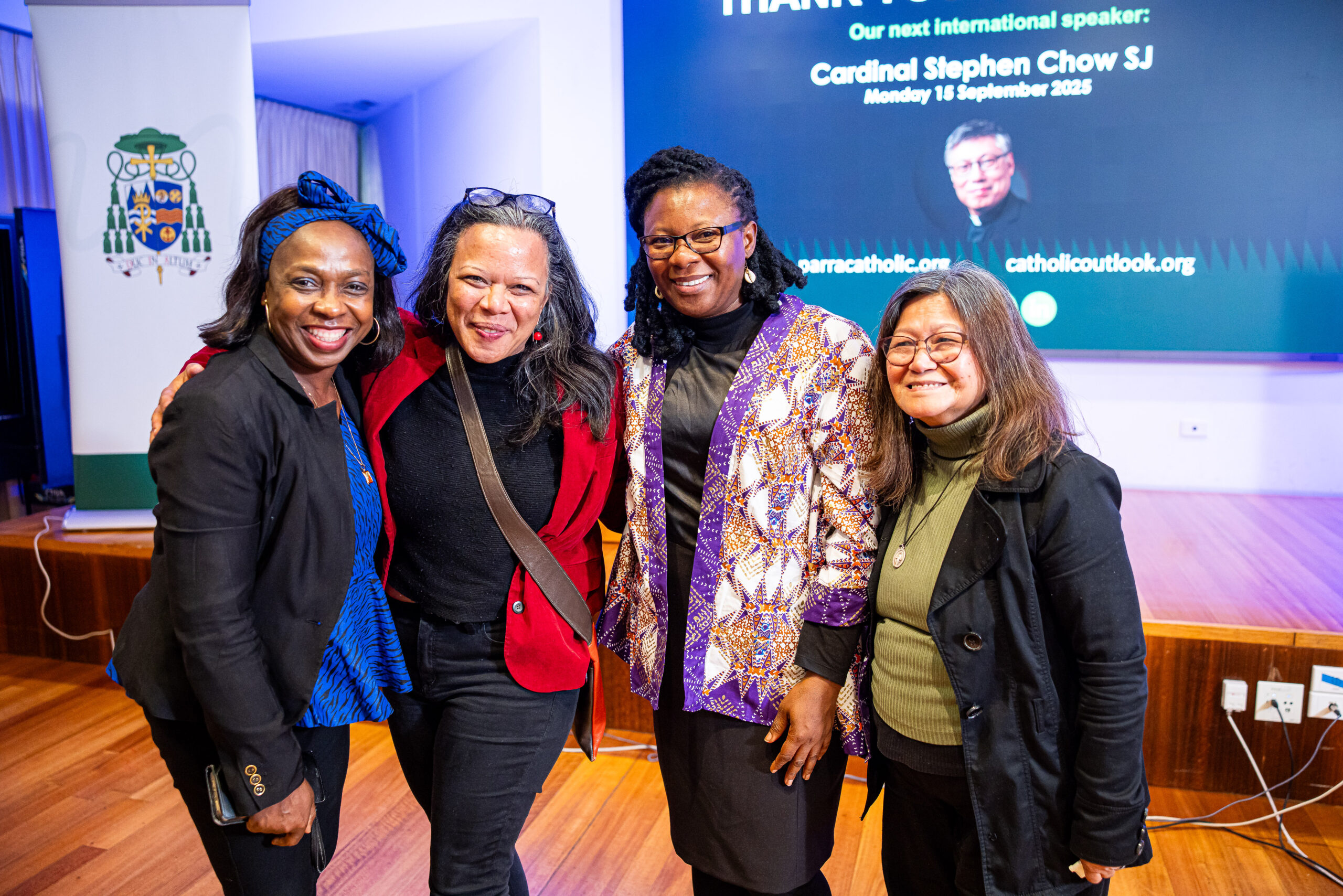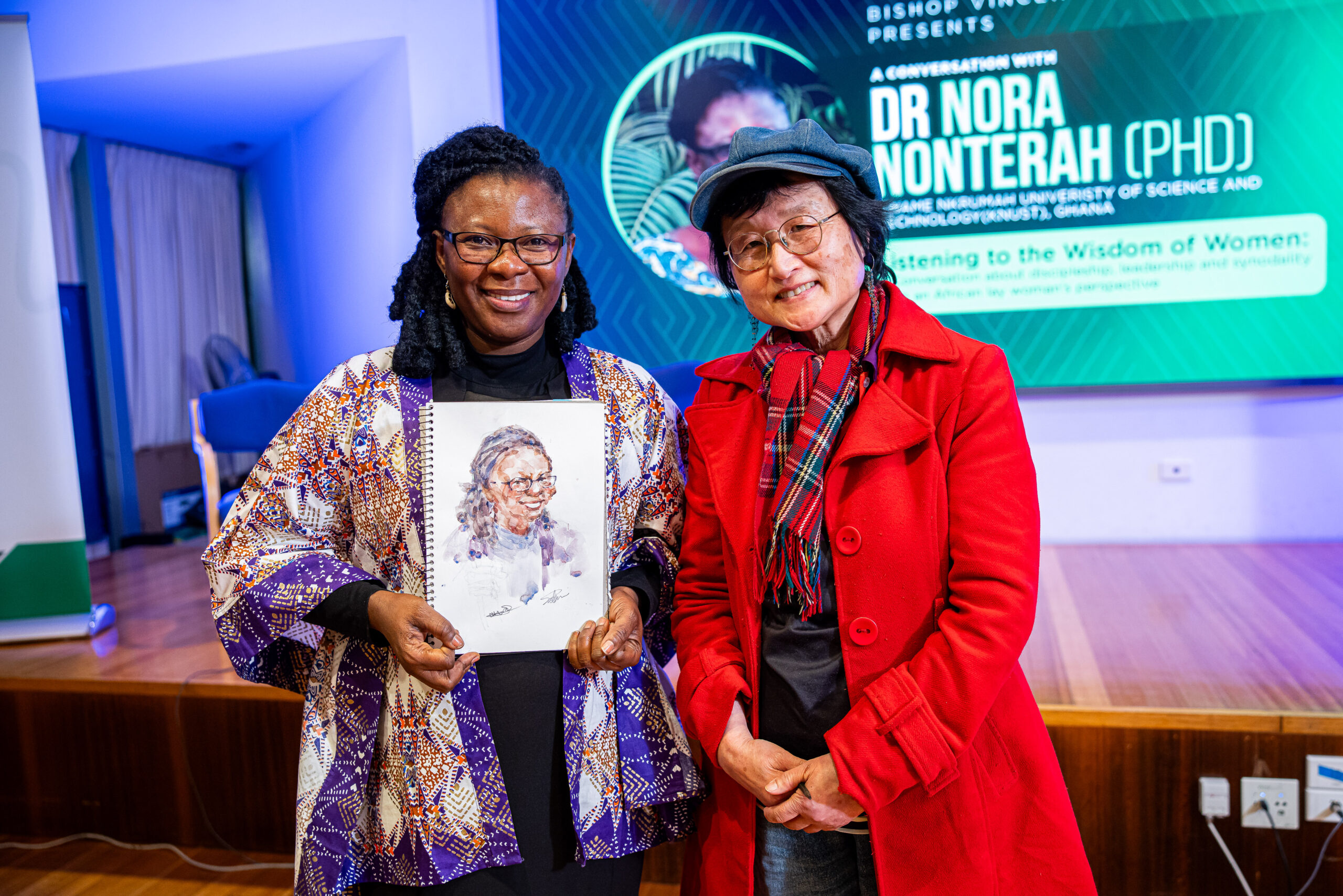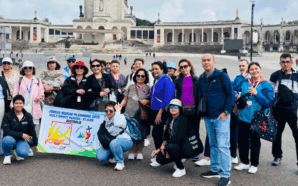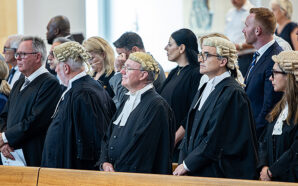On a quiet evening lit with the spirit of reflection and dialogue, faithful people from across the Diocese of Parramatta gathered – physically and virtually – to listen to Dr Nora Nonterah, a lay Catholic woman and theologian from Ghana.
As part of the Bishop Vincent Presents series held at St Patrick’s Cathedral Hall, Dr Nonterah’s public lecture, “Listening to the Wisdom of Women: A Conversation about Discipleship, Leadership and Synodality,” offered not only a unique African perspective, but was an emphatic invitation to all for a conversion of heart based on her experience at the Synod on Synodality in Rome.
As synodality continues to stir conversations especially in Australia, with many dioceses now commencing their own synodal assemblies, voices like Dr Nonterah’s – faithful, thoughtful, and rooted in lived experience – are rising to the forefront. Her conviction resonated with the crowd as a woman who loves her Church deeply but sees its need for healing, inclusion, and renewal.
Women, the custodians of culture
Dr Nonterah’s talk was grounded in her experience of the rich cultural and spiritual heritage of Ghana, where community life, oral tradition, and the wisdom of women are foundational. She shared stories from her upbringing and community, painting a picture of a strong Church that is predominately made up of women, though often sidelined in formal structures and not part of any decision-making processes. Yet, women carry much of the labour of discipleship: catechising children, organising parish life, tending to the sick, and preserving the faith.
“The ‘woman’ in Africa is a repository or an embodiment of knowledge and wisdom,” said Dr Nonterah.
“Women pass on the wisdom of the community to children, [they pass on] ways of being, a sense of awareness of who they are, identity construction, work ethic, history of the community, clan, family, failures and success stories of their ancestors. They are the custodians of culture.
“The African woman speaks and cares for all. She speaks to those issues that matter. The traditional African woman does not monopolise access to life or the sources of life in the culture but opens it up to every member of the society.”
However, there are two problems that African women continue to face in the church – passivity on part of the laity, and clericalism. And she believes all those in the church are responsible for these two issues.
A gift we’ve been given
Central to Dr Nonterah’s lecture was the gift of synodality, but the urgency is on us to understand what to do with this gift.
As Dr Nonterah quoted Pope Francis’ exhortation Evangelii Gaudium, and together with the calls of both Pope Benedict XVI and Pope Francis, the role of all the baptised is to be active agents of evangelisation.
“All the baptised, whatever their position in the Church or their level of instruction in the faith, are agents of evangelisation, and it would be insufficient to envisage a plan of evangelisation to be carried out by professionals while the rest of the faithful would simply be passive recipients.”
Moving away from “passivity” to not only active contribution, but co-responsibility for our Church, is how we can truly become missionary disciples, according to Dr Nonterah.
There is a “need to awaken in all the baptised the sense of being responsible” – but not to point the finger at each other.
“Synodality is NOT a call for clergy to change. It’s a call for ALL of us to change. Synodality ought to be the style of church [we become] which is co-responsibility.”

Dr Nora Nonterah with members of the audience following her lecture. Image: Alphonsus Fok/ Diocese of Parramatta
An African contribution to the universal Church
At her time in the global Synod, Dr Nonterah spoke of the key recommendation from the female voices in the Synod Hall. This is that women have more recognition, opportunities, empowerment, education, and inclusion in leadership systems, all of which would not contradict the doctrine of the church.
From an African female perspective, there were many issues that were raised, such as: greater inclusivity of lay people; safeguarding children and the vulnerable; the urgent need for formation of young people; restructuring of the decision-making process to include the laity and in particular women in the Church.
For a global church that typically views Africa through the lens of “mission territory,” Dr Nonterah’s lecture served as a gentle correction that these issues persist all across the globe and much can be done with the power of the Holy Spirit and when we listen and take responsibility, together.

A member of the audience presents Dr Nora Nonterah with a painting. Image: Alphonsus Fok/ Diocese of Parramatta
A path forward
While critics have viewed synodality as a “talkfest”, Dr Nonterah’s lecture delivered tangible outcomes to move to a co-responsible model. From bringing African women to the synodal table to having women be key formators in seminaries (not just part of the staff), her call was to have “an inter-relational approach to pastoral actions” where everyone is enriched by reciprocity and openness to learn and share, listen and speak as well as openness to encounter.
Her lecture was more than an academic exercise – it was a witness. She reminded us that the future of the Church does not rest solely in synodal documents or ecclesial structures, but in the lives of faithful disciples who continue to love and serve, usually without recognition.
Her voice joins a growing chorus of women across the Catholic world who are asking the Church to be what it claims to be: a community of the baptised, journeying together, listening to one another, and allowing the Holy Spirit to lead.
You can watch Dr Nora Nonterah’s public lecture here.
View the photo gallery below or via Flickr.











